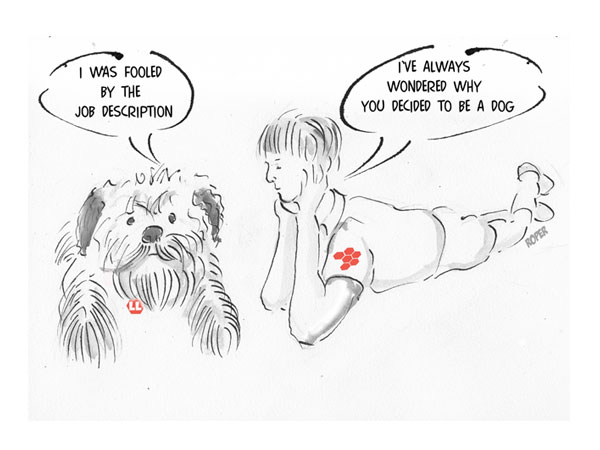When did you last see your job description? Well..? Thought so…
Here’s something for you to try. Forget your ‘to-do’ list just for the moment, and don’t look at your job description, even if you’ve found it by now.
Now, write down the things that it is your job to deliver to your employer – no more than five. Self-employed? The same applies. What are the (up to) five things you must deliver for your business to be successful?
Note that I haven’t said, “the ‘top’ five things”. What I’m asking for is the five areas into which your job falls; if you do this effectively and you are working truly productively, there should be nothing you do in your day-to-day work that doesn’t fall into one of these categories.
Hard, isn’t it? It’s intended to be. It requires a level of strategic focus that most people never bring to their working lives (or indeed, their lives in general – but that’s a whole other conversation).
RIP – your ‘job description’
Take a look at your job description (or your CV if you’re self-employed). In almost every case, you’ll find it’s a broad statement of areas of responsibility and a list of activities. Descriptions like this are concerned with activity rather than output; they fuel a culture of ‘hard work’ and long hours. What you don’t see is a list of the results you are accountable for producing.
Given a focus on activity, most people will do what they believe they’re good at, what they like doing, or if all else fails, what’s most urgent. At management levels, where you have more discretion over how you spend your time, this can produce teams of people working extremely hard but not producing the results that are needed.
Without being given accountability for the specific, measurable results of all your hard work, you don’t get the satisfaction that comes from knowing you have done precisely what is required and done it to the required standard.
What’s a better way of defining your role?
There needs to be a way of defining a role that fosters a culture of results, satisfaction and recognition – and there is.
How would it be if you could describe your job differently. For example:
“I’m accountable for producing
- profitable new business
- a motivated high-performance team
- an efficient, best-practice business operation
- satisfied & delighted clients”
Four key areas of output, which between them cover the whole scope of the job, each with a set of key metrics attached. With a role description like this, you know exactly how each of these areas is measured and the exact status of your performance against each measure at any given time. You don’t have to wait for your performance appraisal to know how you are doing – ever.
Don’t do this by yourself
How do you achieve this degree of clarity and rigour? Get your team together. Taking one job at a time, and using as a starting point the lists of areas of responsibility and activities in your current job descriptions, rigorously and meticulously group activities into themes. Now, question among yourselves what the output of each group or theme is. Don’t jump to quick conclusions but work together on each statement of output until you are all satisfied that it expresses exactly what you agree the role exists to deliver. Work with an outside facilitator, to ensure that you miss nothing and don’t become bogged down in your existing view of the team.
In the process, you’ll find that every team member becomes absolutely clear on the outputs (ideally fewer than six) of their role, and how these are to be measured. Because the whole team has an input into each role, each member is left confident that they are carrying out exactly the role required of them, to the right standards.
Unforeseen benefits
In the process, gaps and overlaps between roles are uncovered and resolved. Misunderstandings about the exact purpose of a set of activities are sorted out, and often whole groups of activity are dropped, as it becomes clear that they serve no useful function. The whole team knows exactly what it exists to produce, and each team member knows exactly what their unique contribution to that result needs to be. Added together over a whole organisation, this focus on the deliverable outputs of every job will produce the results that everyone has committed to producing.
‘Unsticking’ your organisation
The questions asked in the ‘unique contribution’ process are straightforward and confronting. The process of getting clear, simple answers often presses sacred buttons that uncover the nature of the ‘stuckness’ in an organisation: it forces misunderstandings, ambiguity, clashes and unwritten beliefs/rules into the open (another good reason to use an external facilitator), where they can be discussed and resolutions agreed upon.
You will find that the results more than repay the effort involved. The process unlocks the commitment and inspiration of the individuals who participate in it, and the work of the team comes together to produce more cohesive plans and greatly enhanced results, achieved with more collaboration, more recognition and far less ‘hard work’.
You might be a brand-new team just setting up, or an established team crying out for a re-set. If you know your business could achieve more, and you suspect you’re missing a trick, email me at km@leaderslab.co.uk or call me on 07801 259637. Let’s have a chat about what the issues are and what you’d like to achieve.
